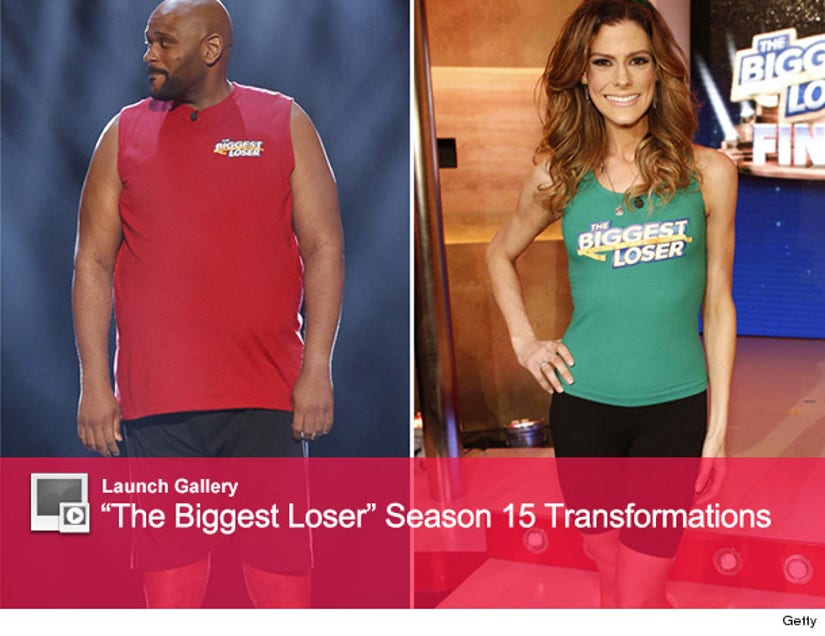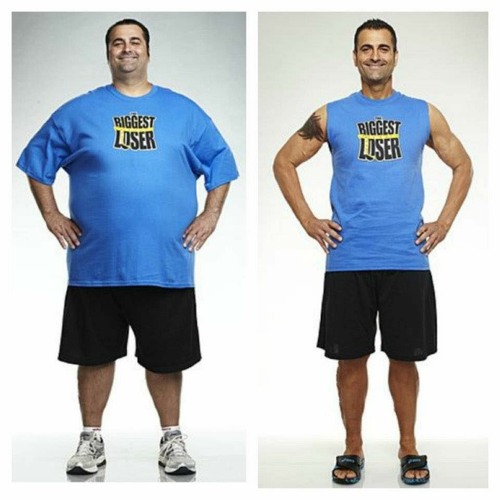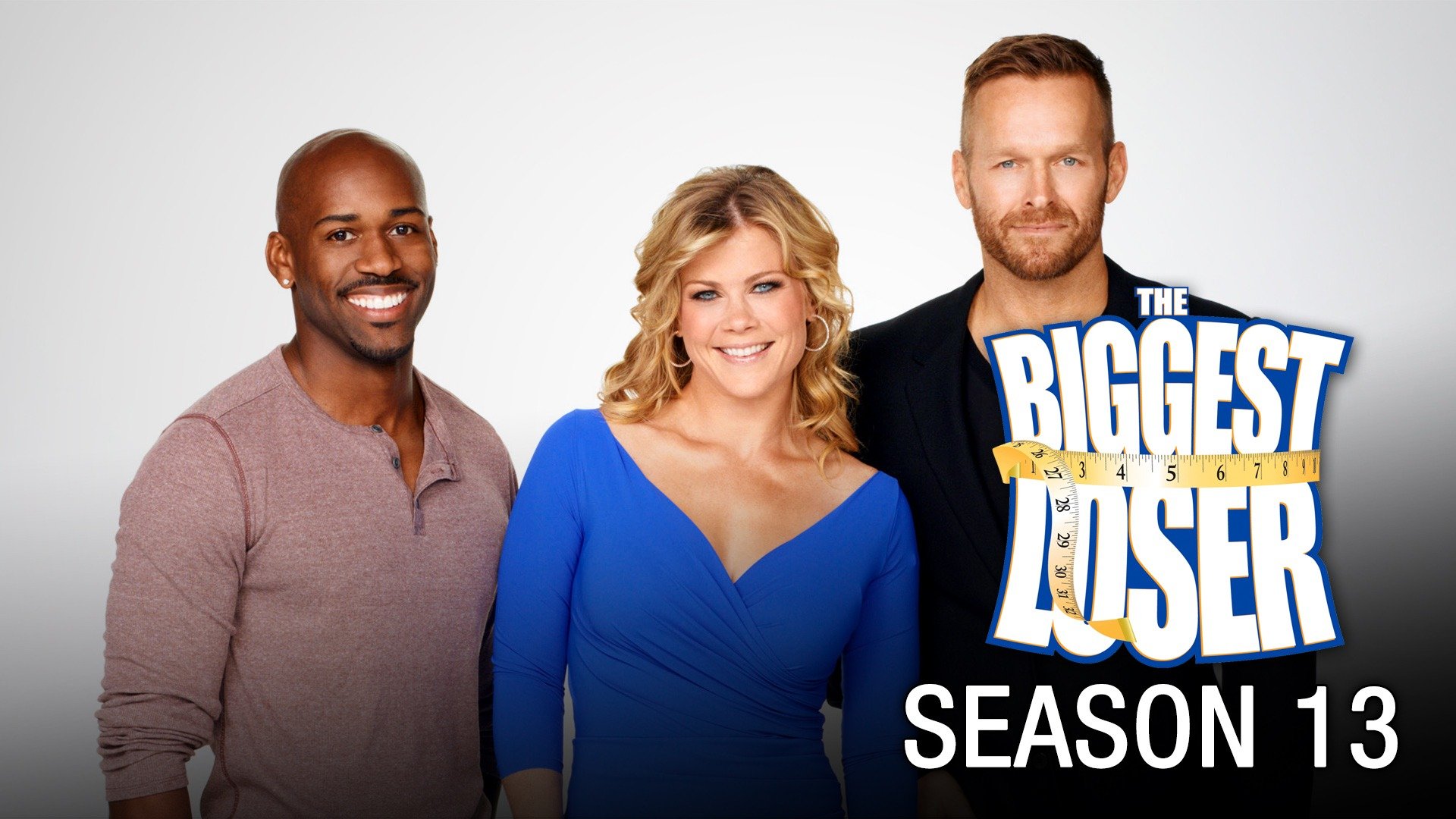The Biggest Loser Season 13 Winner Controversy: A Closer Look At The Dramatic Outcome
Let's dive right into the drama, folks! The Biggest Loser Season 13 was supposed to be a celebration of health, transformation, and triumph—but instead, it turned into one of the most controversial seasons in the show's history. The winner, Rachel Fredericks, faced a whirlwind of backlash and criticism that left fans questioning everything from the show's methods to the contestants' motivations. So, buckle up because we're about to break it all down for you.
When The Biggest Loser first premiered, it was a beacon of hope for people looking to transform their lives. But by Season 13, things started to feel a little… off. The show had already faced scrutiny over its intense weight loss tactics, but this season took things to a whole new level. The drama surrounding Rachel Fredericks' win was just the cherry on top of a pretty messy cake.
This article isn't just about recapping the season—it's about digging deep into the controversy, understanding the context, and figuring out what it all means. If you're a fan of the show or just someone who loves a good drama, you're in the right place. Let's get started!
Read also:Embarking On The Rich Tapestry Of Soul Food A Culinary Journey Through Comfort And Tradition
Table of Contents
- Background on The Biggest Loser
- Season 13 Overview
- Rachel Fredericks: The Controversial Winner
- Weight Loss Methods Under Scrutiny
- Health Concerns and Long-Term Effects
- Judges' Decision: Fair or Flawed?
- Audience Feedback and Reactions
- Media Coverage and Public Perception
- Lessons Learned from the Controversy
- Final Thoughts and Takeaways
Background on The Biggest Loser
Before we jump into the controversy, let's rewind a bit and talk about The Biggest Loser itself. This reality show premiered in 2004 and quickly became a hit, showcasing contestants who were determined to lose weight and transform their lives. The concept was simple: a group of overweight individuals would compete to lose the most weight over several weeks, with the help of trainers, dietitians, and a whole lot of motivation.
But over the years, the show faced increasing criticism for its extreme weight loss methods. Contestants were pushed to their limits, often losing an unhealthy amount of weight in a short period. Critics argued that the show promoted unsustainable practices and could even be harmful in the long run.
Season 13 was a turning point for the show, as it highlighted many of these concerns in a very public way. The winner, Rachel Fredericks, became the center of attention—not because of her incredible transformation, but because of the controversy surrounding her win.
Season 13 Overview
Season 13 of The Biggest Loser was unique in several ways. For one, it was the first season to feature a "Battle of the Families" format, where contestants competed both individually and as part of a family team. This added a new layer of complexity to the competition, as contestants had to balance their own goals with the needs of their families.
Another notable aspect of this season was the introduction of a new trainer, Chris Powell, who brought a fresh perspective to the show. However, despite these changes, the season was still plagued by the same issues that had haunted the show for years.
The final episode aired in March 2013, and it was a rollercoaster of emotions. Rachel Fredericks emerged as the winner, having lost an impressive 155 pounds. But instead of celebrating her victory, the show was met with a wave of criticism and skepticism from fans and experts alike.
Read also:Celebrating The Life And Legacy Of Clarence Gilyard A Tribute To A Multitalented Star
Key Moments of the Season
- Introduction of the "Battle of the Families" format
- Chris Powell's debut as a trainer
- Contestants pushed to their physical limits
- Rachel Fredericks' dramatic weight loss
Rachel Fredericks: The Controversial Winner
Rachel Fredericks' journey on The Biggest Loser was nothing short of remarkable. She started the season weighing 282 pounds and ended it at 127 pounds, losing an astonishing 155 pounds in just a few months. But while her transformation was impressive, it also raised a lot of questions.
Many fans and experts were concerned about the speed and extent of her weight loss. Losing that much weight in such a short period is not only difficult but potentially dangerous. Critics argued that Rachel's win set a dangerous precedent, suggesting that extreme weight loss was the only path to success.
Rachel herself has spoken about the challenges she faced during and after the show. In interviews, she admitted that maintaining her weight loss was a constant struggle, and she faced backlash from both the media and the public. Despite the controversy, she remains proud of her achievement and continues to advocate for healthy living.
Rachel Fredericks' Biodata
| Name | Rachel Fredericks |
|---|---|
| Age at the Time of the Show | 34 |
| Starting Weight | 282 pounds |
| Ending Weight | 127 pounds |
| Total Weight Loss | 155 pounds |
Weight Loss Methods Under Scrutiny
One of the biggest issues surrounding The Biggest Loser Season 13 was the methods used to achieve such dramatic weight loss. Contestants were subjected to grueling workout routines and strict diets, often pushing their bodies to the brink of exhaustion. Critics argued that these methods were not only unsustainable but also potentially harmful.
Research has shown that rapid weight loss can lead to a host of health problems, including muscle loss, metabolic slowdown, and even psychological issues. In fact, a study published in the journal Obesity found that many former contestants from The Biggest Loser regained weight after the show, partly due to the long-term effects of extreme dieting.
Despite these concerns, the show continued to promote its methods as the key to success. But as more research emerged, it became clear that there was a disconnect between the show's message and the reality of sustainable weight loss.
Common Weight Loss Tactics on The Biggest Loser
- Intense workout routines lasting several hours a day
- Strict calorie-restricted diets
- Emphasis on competition over health
- Limited focus on mental health and well-being
Health Concerns and Long-Term Effects
While The Biggest Loser may have been successful in helping contestants lose weight in the short term, the long-term effects were often less than ideal. Many former contestants reported struggling to maintain their weight loss after the show, and some even gained back more weight than they had lost.
This phenomenon is not unique to The Biggest Loser. Studies have shown that most people who lose weight through extreme diets and exercise programs eventually regain it. In fact, the body often fights back against weight loss by slowing down metabolism and increasing hunger hormones, making it even harder to maintain weight loss over time.
Experts have warned that the show's methods could actually be counterproductive, leading to a cycle of weight loss and gain that is both physically and emotionally taxing. Instead of promoting sustainable lifestyle changes, the show often focused on quick fixes and dramatic transformations, which may not be the best approach for long-term health.
Key Health Concerns
- Metabolic slowdown
- Muscle loss
- Psychological stress
- Difficulty maintaining weight loss
Judges' Decision: Fair or Flawed?
Another aspect of the controversy surrounding Rachel Fredericks' win was the judges' decision. Critics argued that the judging criteria were flawed, focusing too much on physical appearance and not enough on overall health and well-being.
While Rachel's weight loss was impressive, some fans felt that other contestants, such as Ali Landry, deserved the win. Ali had also lost a significant amount of weight and was praised for her positive attitude and commitment to healthy living. However, the judges ultimately chose Rachel, citing her dramatic transformation as the deciding factor.
This decision left many fans feeling disillusioned, as it seemed to prioritize extreme weight loss over sustainable lifestyle changes. Some even accused the show of manipulating the judging process to create drama and boost ratings.
What the Judges Considered
- Weight loss percentage
- Physical appearance
- Consistency and effort
- Overall transformation
Audience Feedback and Reactions
The reaction to Rachel Fredericks' win was mixed, to say the least. Some fans were thrilled to see her achieve her goal, while others were outraged by the methods used to get there. Social media exploded with comments and criticisms, with many people weighing in on the controversy.
One common theme among the criticisms was the show's focus on extreme weight loss. Many fans felt that the show was promoting unhealthy practices and setting unrealistic expectations for viewers. Others argued that the show should have placed more emphasis on mental health and well-being, rather than just physical transformation.
Despite the backlash, Rachel Fredericks remained a fan favorite for many. Her determination and resilience inspired countless viewers, and her story continues to resonate with people around the world.
Common Audience Reactions
- Support for Rachel's transformation
- Criticism of extreme weight loss methods
- Concerns about long-term sustainability
- Questions about the judging process
Media Coverage and Public Perception
The controversy surrounding The Biggest Loser Season 13 was not limited to social media. The mainstream media also weighed in, with articles and interviews exploring the issues raised by the show. Experts from the fields of nutrition, exercise science, and psychology chimed in, offering their perspectives on the show's methods and their potential impact on contestants.
Some media outlets praised Rachel Fredericks for her incredible achievement, while others criticized the show for promoting unhealthy practices. The debate raged on, with both sides presenting compelling arguments. Ultimately, the controversy helped to shine a light on the broader issues surrounding weight loss and health in America.
As the media coverage continued, the show faced increasing pressure to address these concerns. In subsequent seasons, The Biggest Loser made some changes to its format, placing more emphasis on sustainable lifestyle changes and mental health. However, the damage had already been done, and the show's ratings began to decline.
Lessons Learned from the Controversy
Looking back on The Biggest Loser Season 13, it's clear that there were some important lessons to be learned. First and foremost, the show highlighted the dangers of extreme weight loss and the importance of sustainable lifestyle changes. It also underscored the need for more emphasis on mental health and well-being, rather than just physical transformation.
For viewers, the controversy served as a reminder that weight loss is a personal journey, and there is no one-size-fits-all solution. It also highlighted the importance of setting realistic goals and focusing on long-term health rather than quick fixes.
Ultimately, the controversy surrounding Rachel Fredericks' win was a wake-up call for the fitness and entertainment industries. It forced people to rethink their approach to weight loss and health, and it paved the way for more balanced and holistic programs in the future.
Final Thoughts and Takeaways
The Biggest Loser Season 13 was a season full of drama, controversy, and transformation. Rachel Fredericks' win may have been met with backlash, but it also sparked important conversations about weight loss, health, and sustainability. While the show's methods were certainly flawed, her story remains an inspiration to many.
As we move forward, it's important to remember that weight loss is a personal journey, and there is no one "right" way to achieve it. By focusing on sustainable lifestyle changes and prioritizing mental and physical health, we can create a more balanced and holistic approach to wellness.
So, what do you think? Was Rachel


